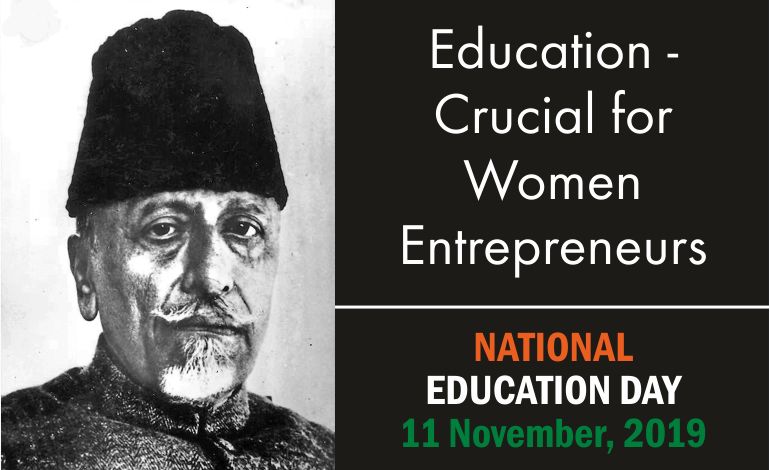On National Education Day (November 11), Sheatwork focuses on the importance of education for women entrepreneurs
India celebrates National Education Day today (November 11) to commemorate the birth anniversary of the Indian legend – Maulana Abul Kalam Azad, who served as the first Minister of Education of independent India.
Recalling the great personality, it was obvious that he was hugely talented. He was a renowned scholar, a brilliant orator a poet and was well-versed in many languages; and we remember that he firmly believed in universal primary education, specially for girls. Moreover, he believed that education should be free and it should be compulsory education for all children upto the age of 14. He also felt that vocational training and technical education also should be provided.
So strongly did he advocate education of women, that he proposed that no programme of national education can be appropriate if it does not fully focus on the education and advancement of one-half of the society – that is women.
Coming to entrepreneurship, there is no doubt that “education” is key. But interestingly, educational requirements for entrepreneurs are non-specific, However, many feel that a strong business background can help in securing financial support, which is most important. While successful entrepreneurs, even women, are well trained in their fields, qualifications can vary.
In fact, today the significance of entrepreneurial education has come upfront – in order to reduce the chances of start-up failure. Many MBA institutes are including this as a subject in their syllabus.
But, is entrepreneurial education really important? Can it really help entrepreneurs, specially women, avoid start-up failure? Most researchers and academicians firmly believe entrepreneurship cannot be taught and it can be only learnt through trial and error.
Enterpreneurs think different. ‘Thinking different’ is good but an important aspect is ‘impact differently’. With maximizing impact, an important learning component should actually work for the sustainability of the start-up ventures; creating uniqueness in ideas that stand apart in the learners’ ability to solve a problem, as nobody else could ‘think and do’ prior to this incident. Hence, thinking different is a useful talent but, highlighting special and unique features like execution and sustainability will help.
Now, most importantly, is there a misconception that higher education is not really needed for – and may even inhibit entrepreneurial success? For we must remember that Steve Jobs, Mark Zuckerberg and Bill Gates have shown that you do not need a diploma to succeed in your business!!! On the other side of the coin, a Kauffman Foundation study revealed that over 90% of American tech company founders hold a bachelor’s degree, and those with MBAs are able to start and build their companies faster.
Even for those who maintain that a college education isn’t essential to successful entrepreneurship, alternative educational programs are well worth considering. This is a fact! Such programs are able to teach skills and provide resources to both experienced and new entrepreneurs, that cannot be easily accessed when working all by yourself.










